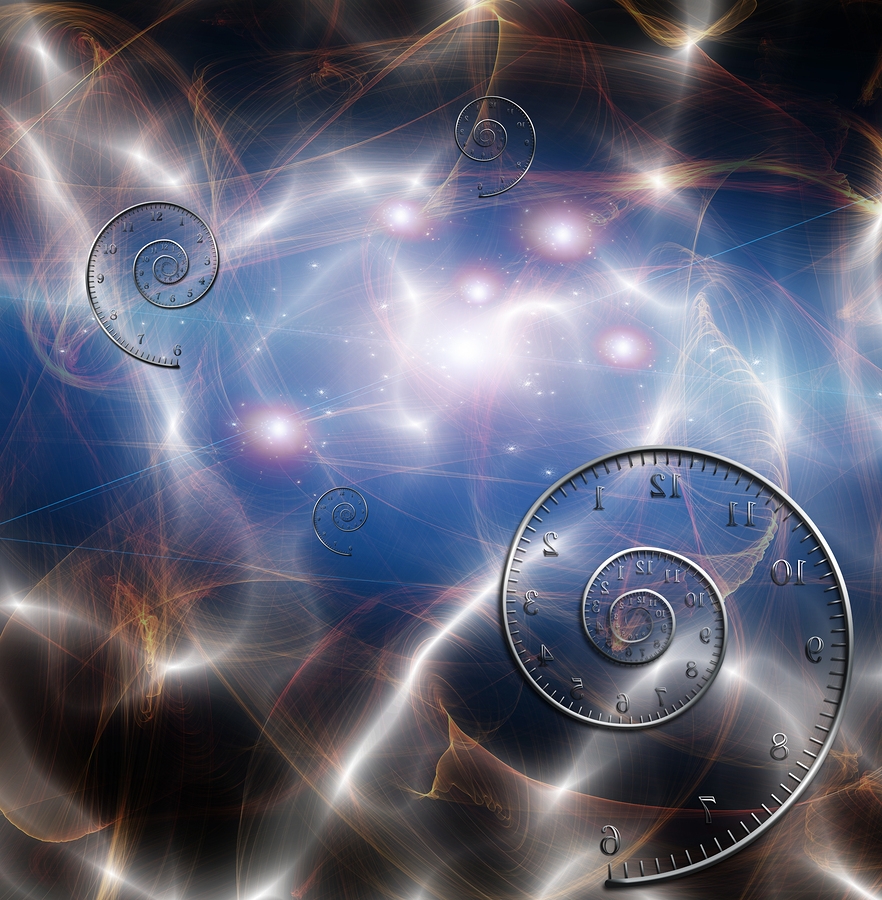
That's the answer according to the reductionist worldview: everything in the universe, and everything that happens in the universe, can be reduced to physical cause-and-effect. Nature comprises an array of particles, fields, and forces which, collectively, conspired to create not only your DNA, but also the environmental conditions that fashioned you into the person you are.
Reductionists believe that every choice we make is predetermined by the circumstances that produced that choice. Free will is an illusion. It feels like we are free, but we are nothing more than robots following the programming of our biology and psychological predisposition.
In his new book, Why Free Will Is Real, philosopher Christian List of the London School of Economics rejects determinism in favor of free will. Although he concedes that physical process underlies the workings of our mind, Professor List argues that the factors involved in free will are higher-level, emergent phenomena that transcend simple biological and environmental causation.
(Buy " Why Free Will Is Real" by clicking here or order in KINDLE edition at a 5% discount by clicking here. Sales help fund JWR.)
DECODING THE FREEDOM MATRIX
In an interview with John Horgan for Scientific American , Professor List outlines the essential elements of free will. The first is intentional agency, which refers to the various attitudes — e.g., beliefs, desires, obligations, and commitments — that constitute our mental state and drive our decision-making process.
The second element is alternative possibilities, which means options. If I only have one choice, then that choice — by definition — is not free.
The third and final element of free will is causal control, which means the ability to design and execute a plan of action independent of future information or variables — in other words, to project into the future based on the past and present.
While it is always reassuring when modern secularists find their way to agreement with ancient theology, the traditional approach to free will is somewhat more nuanced.
In a sense, we are prisoners of our biology and experience. But that doesn't mean we can't find the key to freedom. And that's what free will really is all about.
THE BATTLE TO BE FREE
In his classic treatise, Rabbi Elyahu E. Dessler describes what he calls the point of free will. He offers the analogy of a battlefield, with miles and miles of territory in either direction secured and controlled by each army on either side. Actual conflict proceeds only at a single point of engagement — the battlefront.
Similarly, all the forces of intentional agency — self-interest vs. self-image, gratification vs. moderation, and individualism vs. communal responsibility — vie with one another to influence the outcome of each contentious decision.
Of course, most decisions are not contentious. What to eat for breakfast, which brand of toothpaste to buy, and what color socks to wear should not require a significant amount of internal debate. Those choices — along with matters of habit on the one hand and unattainable aspirations on the other — are behind the lines, as it were. Their outcome is not in question, and they are not truly subject to free will.
In contrast, such choices as whether to embellish my resume, point out an error in my favor on a restaurant tab, or stop to help an elderly pedestrian when I'm late for an appointment — the challenge posed by these moral dilemmas may give rise to profound tension within my heart and mind.
Ultimately, it is not any single choice we make that matters most but the continuous effort we expend grappling with ethics and uncertainty. By striving to make good choices, we gradually develop moral discipline and push the battlefront forward. Every moral skirmish weakens our inclination toward selfishness and indulgence. Every moral victory shifts the front lines in the battle for our souls.
OUTCOMES DON'T MATTER
The 17th century moral philosopher John Locke offers the example of a woman who doesn't know that she is locked in a room. If she chooses to stay in the room and makes no effort to leave, can that really be considered a choice? After all, had she attempted to leave, she would have found it impossible to do so.
What really matters, however, is not the outcome but the choice itself. Responsible choices mold us into responsible individuals, where self-serving choices erode the foundations of personal responsibility. In the refinement of character, factors beyond our control are irrelevant. What matters is our commitment to the development of moral discipline.
Professor List finds his way back to tradition on the matter of causal control. The inclination to look into the future and gauge the consequences of our actions, not just for ourselves but for those who share our world, provides perhaps the most compelling argument in favor of free will.
It is the unique capacity of human beings to aspire to do good solely for the sake of doing good. At every decision point, we can visualize which choices will lead us to become the best version of ourselves and contribute to the best version of the world we live in. When we act accordingly, we testify to the nobility of the human soul and cultivate the moral discipline that is the essence of free will.
JewishWorldReview.com regularly publishes articles that inspire and uplift. Sign up for the daily JWR update. It's free. Just click here.
(COMMENT, BELOW)
Rabbi Yonason Goldson is director of Ethical Imperatives, LLC. He is an ethics speaker, strategic storyteller, TEDx presenter, and author. He is also a recovered hitchhiker and circumnavigator, former newspaper columnist, and retired high school teacher in St. Louis. Visit him at at http://ethicalimperatives.com.


 Contact The Editor
Contact The Editor
 Articles By This Author
Articles By This Author